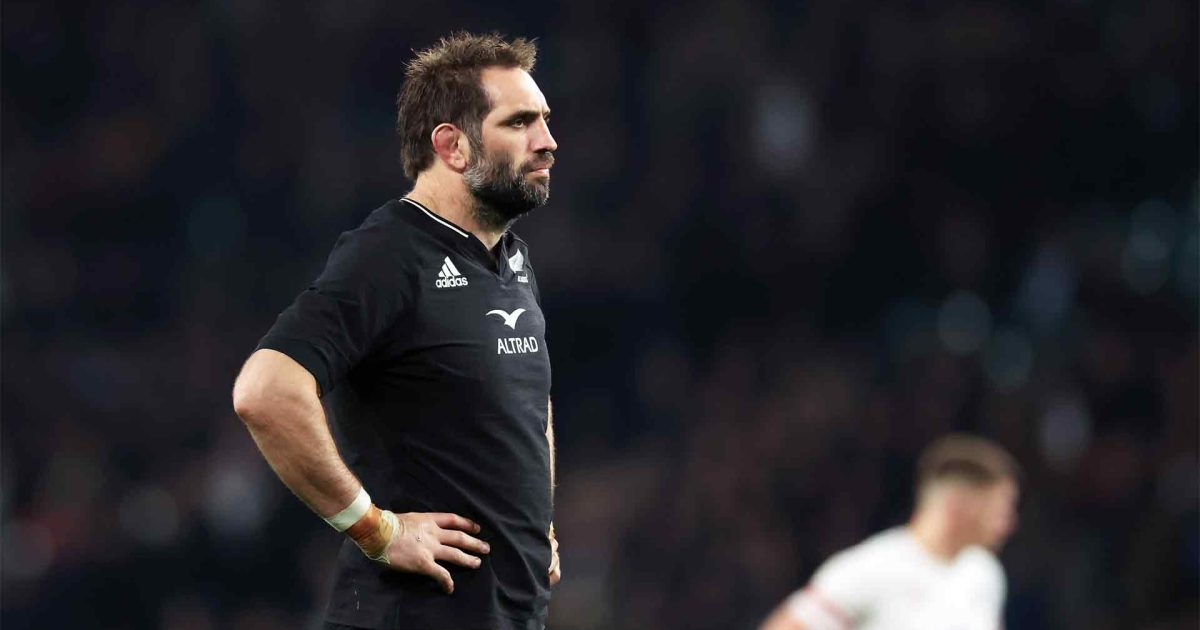A pass mark was never on the cards for the All Blacks

The All Blacks entered their final Test of 22 playing for a pass mark for the season – or, at least, that was the narrative ahead of their clash with England at Twickenham.
That, perhaps, is putting too much weight on the second half of the year, however.
The season effectively started as the prior finished, with the All Blacks getting belted by some aggressive, physical northern opposition, and Ian Foster quickly found himself under pressure to retain his job.
Despite smashing Ireland at Eden Park to give New Zealand fans some hope for a bounce-back campaign after a disappointing 2021, things quickly fell apart in the second Test, and the All Blacks fell to a historic home loss, and then an historic home series loss.
Changes were made to the coaching set-up but it wasn’t enough to prevent a third straight defeat, with the Springboks claiming a win in Mbombela – the same Springboks who’d just fallen to a first-ever home loss to an out-of-sorts Wales side.
An excellent start the following week at Ellis Park saw NZ race out to a 15-0 lead early in the match and it looked like the influence of new forwards coach Jason Ryan might be bearing fruit. That relief didn’t last long, however; the Springboks stormed back into the match and actually took a two-point lead with just 12 minutes left to play.
The All Blacks escaped on that occasion, winning 35-23 with a late flurry of tries and saving Foster’s job, but it wasn’t the turning point in the season that many would have hoped for.
While New Zealand Rugby formally backed Foster to take the team to the World Cup, the very next match saw the All Blacks suffer another historic loss, this time to Argentina in Christchurch.
At that stage, a pass mark for the season was realistically never on the cards. Two wins from six matches to start the year was an awful beginning – especially when four of those fixtures were played in New Zealand.
With seven games remaining in the season, there was just one opponent remaining that will be seriously competing for World Cup glory in 2023. The rest of the matches, for any other All Blacks side in history, would have been gimme victories.
To their credit, Foster’s men didn’t drop another match, getting past Argentina, Australia, Japan, Wales and Scotland. But it was a slog.
But were it not for some controversial refereeing from Mathieu Raynal, the Wallabies would have scored a rare win over their trans-Tasman rivals in Melbourne.
Japan are not the force they were in 2019 – their results against the likes of England, France and Australia A have made that evident – but somehow pushed NZ right to the brink.
Scotland were also on track for a historic victory before they self-destructed.
Wales were the only side that New Zealand were able to relatively comfortably dispose of on in the first three matches of their end-of-year tour.
If those three matches were World Cup knockout matches then the nature of the wins could be dismissed, because when the World Cup is on the line, all that matters is the result. When you’re one year out from a World Cup, however, that’s not the case. Wins are important, but so is producing evidence that you can actually compete with the other sides who will be seriously vying to take home the William Web Ellis Cup. None of that was visible in Tokyo, Cardiff or Edinburgh.
The Scotland match, in particular, carried on a worrying trend of the All Blacks establishing a handy lead (as they did against South Africa and Australi) and then simply falling asleep – and that same issue reared its head again at Twickenham.
Up 14-0 after 10 minutes, and then 25-6 with just 10 minutes to play, England had absolutely no business grabbing a draw in London. Until the last eight minutes, it might have been NZ’s best performance of the year – although an overzealous Raynal on the whistle didn’t help England’s cause.
The big question, of course, is whether the All Blacks have actually taken any steps forwards since their horror start to the year.
Yes, their win rate has grown – but are they any closer to winning the World Cup in France next year?
If the All Blacks had to play Ireland or France at next year’s tournament (and the likelihood is they’ll face both) are they in a better position to score a victory now than in July?
Jordie Barrett’s positional shift has enhanced the midfield while Tyrel Lomax is a better open-field prop than someone like Nepo Laulala, Joe Schmidt has certainly enhanced New Zealand’s backline potency and the maul looks to have become a genuine weapon – but the All Blacks don’t appear to have made the strides forward needed to strike fear in opposition sides. For all their supposed gains, Foster’s men have still struggled to dispose of the likes of Argentina, Japan and Scotland.
South Africa, Ireland, France and England will all enter the World Cup believing they can bowl the All Blacks – more so than in any tournament in the game’s history.
Could New Zealand win the World Cup? Absolutely. But they certainly won’t be the favourites and a ‘successful’ back-end of the season shouldn’t convince anyone that they’re much better than an outside chance of grabbing glory in 2023.


































































With foster in the coaching setup no one has any confidence in the All Blacks winning anything. The recent wins are a bonus.. how NZR keep him on says volumes about them.